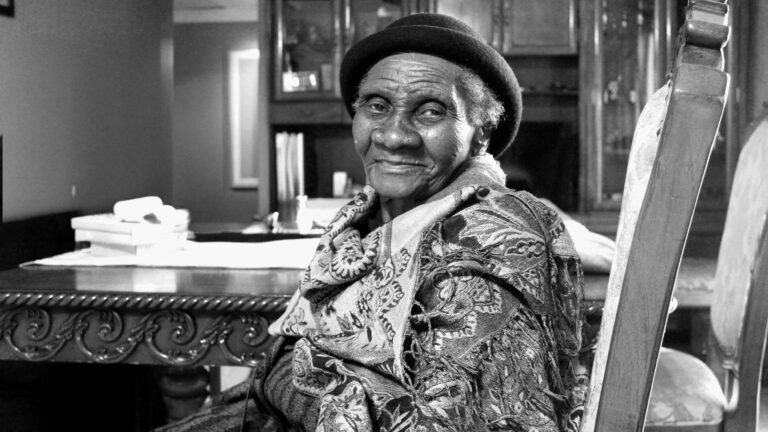“Do you even Bible, bro?” my friend chuckled wryly, using our favourite catchphrase. It was mid-morning teatime, so we were in the break room, exchanging stories about the lack of discernment that seemed to be all around us. We, of course, were exempt from this dire deficiency. That question was frequently asked in our reformed circle of friends. Two years into learning about the doctrines of grace and I had become an insufferably smug saint. Little did I know I was deep in the ‘cage stage’. Let me explain what I mean.
Two years into learning about the doctrines of grace and I had become an insufferably smug saint.
Cage Stage Symptoms
Prior to finding my tribe, I had discovered Discernment Ministries, and was well on my way to being disinvited from all parties.
At any social gathering, day or night, my ears perked up at the mention of Joyce Meyer, Juanita Bynum, or Joel Osteen. I’d make my way over to the group having the tragic conversation, and stridently let them know why those people were not worth listening to. I was certainly quick to hear, but also quick to speak and to anger (James 1:19).
The Problem
The problem described above is a case of “cage stage rage”. R. C. Sproul describes believers at this stage as “so aggressive and impatient that they should be locked in a cage for a little while so that they can cool down and mature a little in the faith”.
You get extremely sore ankles from jumping to all sorts of conclusions about people’s beliefs.
Speaking patronisingly to anyone who doesn’t hold the exact same beliefs as you do is part and parcel of this stage. You also get extremely sore ankles from jumping to all sorts of conclusions about people’s beliefs, often based on stray bits of information.
A believer displaying behaviour like this really ought to be in a cage. Wild animals are locked up for fear that they will hurt people. That is natural and sensible. One writer holds that man is actually the only wild animal, because we so often go against our original design. The real problem is that theological pride is being met with an obsession with getting things right. This often causes offence and suffering.
The Diagnosis
Anger seems to be the root cause of this phenomenon. It’s a twofold anger: (1) a right anger at sin and error; and (2) the not-so-right anger at other believers. Cage stage believers understand that anger can be appropriate in certain situations. After all, God the Father displays anger on countless occasions. And didn’t Jesus get angry when people were defiling the temple? However, where these believers are out of balance is in thinking that their anger is comparable to the holy anger of God.
Where these believers are out of balance is in thinking that their anger is comparable to the holy anger of God.
My First Encounter with Total Depravity
The anger at other Christians is somewhat understandable. When encountering total depravity for the first time—long before I found deep comfort in this doctrine—I was enraged. Total depravity means absolutely everything is fallen: from nature to our intellect to our interpersonal relationships. Everything is corrupt. Though often called one of the most empirically obvious Christian doctrines it is rarely heard, even among Christians.
But, on the other hand, if everything is corrupt, then what are we doing wasting time engaged in meaningless activities like jockeying for position and envying each other? Surely, we could all see that this meant we should be much, much kinder to one another? Since all have sinned and fallen short of the glory of God (Romans 3:23), we are left with little room for pride. Instead, we should be gracious and gentle.
The angry ones draw a seemingly logical conclusion that if their fellow believers can’t see what they see, they must not be saved
More laid back Christians see cage stage believers as uptight, overly serious, and in desperate need of several chill pills. Meanwhile, the angry ones draw a seemingly logical conclusion that if their fellow believers can’t see what they see, they must not be saved. This is an unbalanced zeal. Passages like Job 35:10, 11 and Jeremiah 2:6 are rightly understood but wrongly applied.
Confusing Theological Precision with Salvation
Cage stage rage also manifests itself in confusion about salvation. Steve Lawson helpfully distinguished between his salvation and coming across reformed doctrine at a later point in his life. From 2018 to 2020, I was a newbie at three different congregations. Repeatedly answering the question ‘how did you come to know Jesus?’ gave me pause for thought. By late 2019, I stopped giving what I felt was the right (and rote) response, and started framing my answer with “well, from my perspective…”
Reformed does not equal saved.
This year, watching Lawson give his answer during a Q&A encouraged me to say, “Yes, I was saved at 17”, and “Yes, I came across reformed theology 15 years later”. Reformed does not equal saved.
3 Cage Stage Cures: Bible, Grace & Gentleness
Three remedies for cage stage rage have proven effective over the years: reading the Bible; meditating on God’s grace; and embracing gentleness.
Bible reading should be obvious. But it bears mentioning. Anger can be a blinding force, blocking our understanding of God’s word. Going through scripture diligently, and asking the Holy Spirit to help us rightly comprehend what we read, will stand us in good stead. It is only by reading the word that we learn that God feels indignation every day (Psalm 7:11). In the Bible, we learn how to keep a rein on our anger (Proverbs 14:29), as well as the benefits of forsaking anger and pursuing love (1 Peter 4:8).
Anger can be a blinding force, blocking our understanding of God’s word.
Meditating on the grace of God is the cure for many ills, including the wrong valuation of repentance in God’s economy. Cage stage believers do not understand how strong the Father’s desire is for the repentance of his people (Ezekiel 18:32). Jonah was an angry one too. He also failed to grasp the importance of repentance. He was so annoyed with God he went as far as wanting to die (Jonah 4:1-3). Considering the grace of God corrects our perspective.
Zeal is good and must be according to knowledge (Romans 10:2). But wisdom must go hand-in-glove with gentleness. As Matthew Henry said, “Passionate and satirical invectives against bad men do more hurt than good; if we will speak of their badness, let it be to God in prayer, for he alone can make them better.”
Defending the faith is a noble endeavour. But that nobility is compromised when unchecked anger is present.
Moving Beyond The Cage Stage
I owe a lot to various Discernment Ministries. I love them to bits. But after a while, some pockets of this type of work started to give off bad vibes. Though greatly needed, take downs can veer unhelpfully into the territory of mockery. And there were often no holds barred on snarky and sarcastic comments.
Defending the faith is a noble endeavour (Jude 3). But that nobility is compromised when unchecked anger is present. Whether the cage stage describes you or someone you care about, be encouraged: it’s only a stage. Thankfully, nothing lasts forever on this side of eternity.














